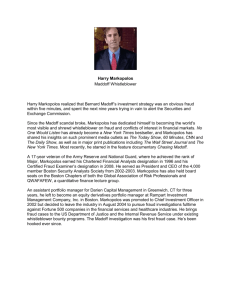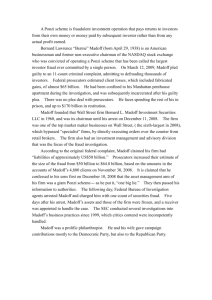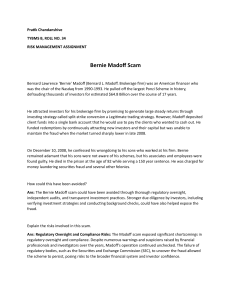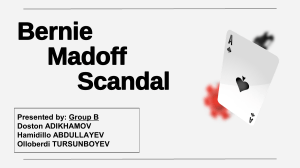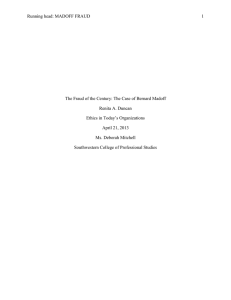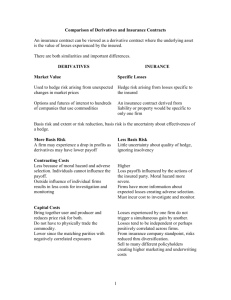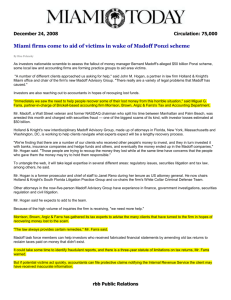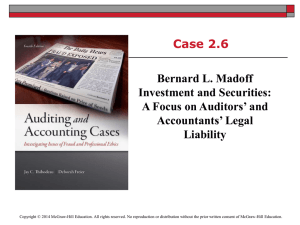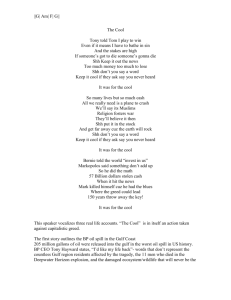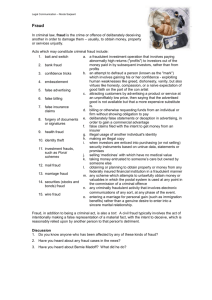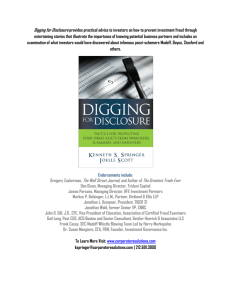Ten Ways to Avoid Investment Fraud
advertisement
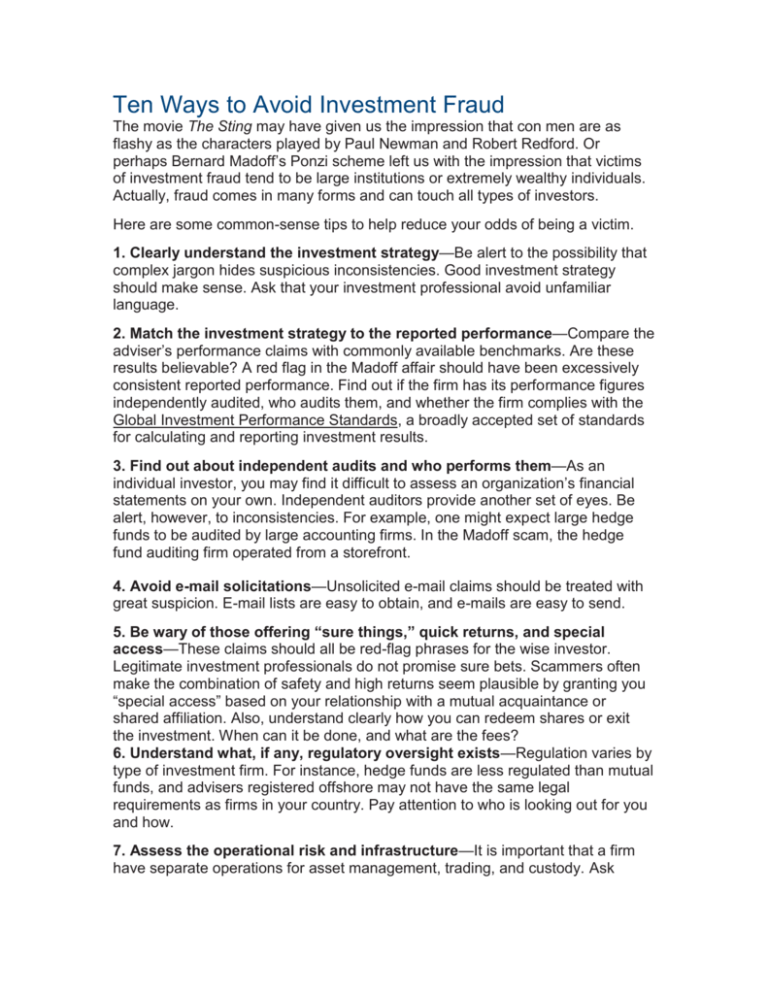
Ten Ways to Avoid Investment Fraud The movie The Sting may have given us the impression that con men are as flashy as the characters played by Paul Newman and Robert Redford. Or perhaps Bernard Madoff’s Ponzi scheme left us with the impression that victims of investment fraud tend to be large institutions or extremely wealthy individuals. Actually, fraud comes in many forms and can touch all types of investors. Here are some common-sense tips to help reduce your odds of being a victim. 1. Clearly understand the investment strategy—Be alert to the possibility that complex jargon hides suspicious inconsistencies. Good investment strategy should make sense. Ask that your investment professional avoid unfamiliar language. 2. Match the investment strategy to the reported performance—Compare the adviser’s performance claims with commonly available benchmarks. Are these results believable? A red flag in the Madoff affair should have been excessively consistent reported performance. Find out if the firm has its performance figures independently audited, who audits them, and whether the firm complies with the Global Investment Performance Standards, a broadly accepted set of standards for calculating and reporting investment results. 3. Find out about independent audits and who performs them—As an individual investor, you may find it difficult to assess an organization’s financial statements on your own. Independent auditors provide another set of eyes. Be alert, however, to inconsistencies. For example, one might expect large hedge funds to be audited by large accounting firms. In the Madoff scam, the hedge fund auditing firm operated from a storefront. 4. Avoid e-mail solicitations—Unsolicited e-mail claims should be treated with great suspicion. E-mail lists are easy to obtain, and e-mails are easy to send. 5. Be wary of those offering “sure things,” quick returns, and special access—These claims should all be red-flag phrases for the wise investor. Legitimate investment professionals do not promise sure bets. Scammers often make the combination of safety and high returns seem plausible by granting you “special access” based on your relationship with a mutual acquaintance or shared affiliation. Also, understand clearly how you can redeem shares or exit the investment. When can it be done, and what are the fees? 6. Understand what, if any, regulatory oversight exists—Regulation varies by type of investment firm. For instance, hedge funds are less regulated than mutual funds, and advisers registered offshore may not have the same legal requirements as firms in your country. Pay attention to who is looking out for you and how. 7. Assess the operational risk and infrastructure—It is important that a firm have separate operations for asset management, trading, and custody. Ask about these important firewalls. Do the entities involved inspire trust? Also, ask whether the firm claims compliance with the Asset Manager Code of Conduct. 8. Assess the personnel—Are the people who will advise you and conduct your investing trained and experienced? Do they have a professional credential, like the Chartered Financial Analyst (CFA) designation? Do they abide by a professional Code of Ethics that requires them to place the interests of their clients ahead of their own? Be careful not to let down your guard simply because the prospective manager has an elevated social position; a religious, ethnic, or family background that is similar to yours; or impressive degrees and designations. 9. Limit your exposure—Diversification is one of the most fundamental and enduring investment principles. For example, it is worth thinking twice before investing more than 5 percent of your assets in one security. 10. Perform a background check—Don’t get pressured to make a decision before you have checked for past censures, pending investigations, or lawsuits and verified legitimate registration. For firms and advisers based in the United States, check the Financial Industry Regulatory Authority (FINRA) and the Securities and Exchange Commission (SEC) for more information. In Canada, check the websites of provincial and territorial securities regulators as well as the Investment Industry Regulatory Organization of Canada (IIROC). Don’t let this or any other list of issues limit how you reflect on your investment planning. You should use common sense when dealing with any financial professional. You should feel comfortable asking a wide range of questions concerning the safety and security of your investments. Credible investment professionals speak knowledgably and comfortably about their strategies, experience, and professional standards. CFA Institute
